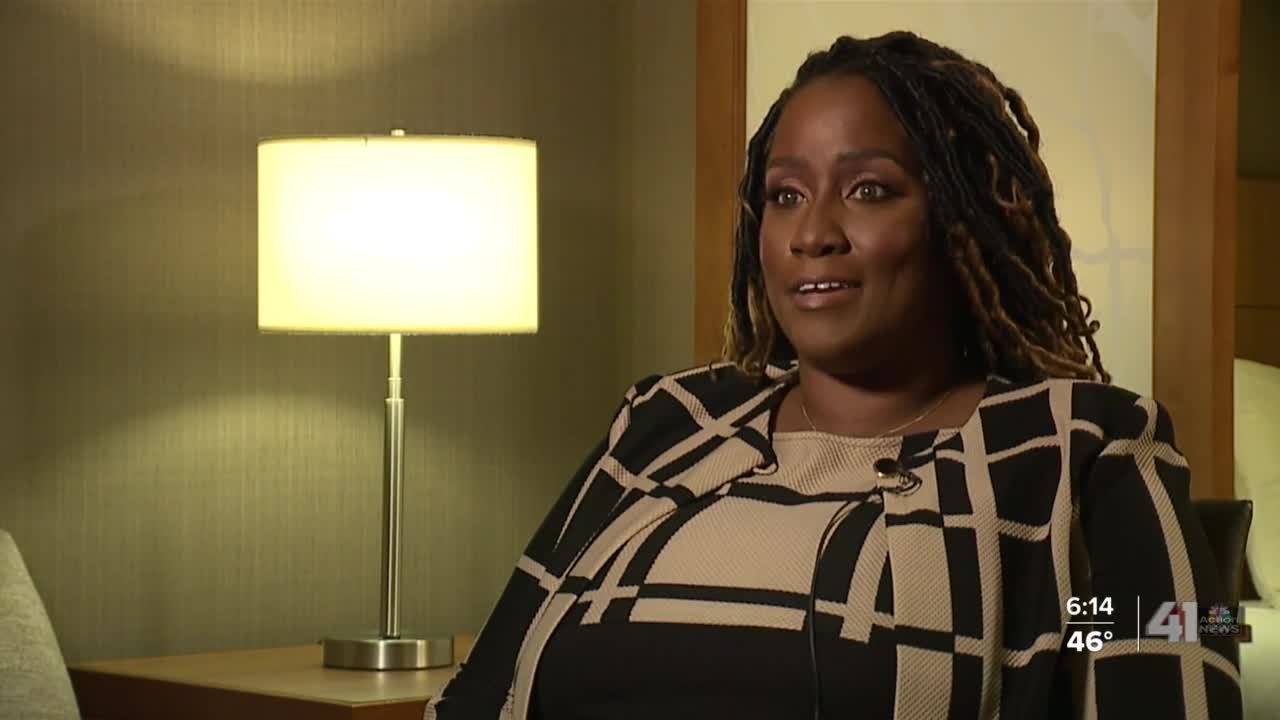KANSAS CITY, Mo. — When Mishelle Martinez walks into a room, she makes an impression.
“As a lawyer, especially in the industry that I'm in, which is construction and engineering, age and gender tend to be one of the first things people notice about me, perhaps because many times I'll be the only woman in the room,” Martinez said.
She felt intimidated earlier in her career, but now she said she uses that as a welcome challenge as well as an opportunity to grow and educate the people around her.
But Martinez said it hasn’t always been that way.
“I am a twin, and I have always been known to be the dominant, bossy one between the two,” she said. “Now, we know that bossy just means you're a leader, but back then, it didn't feel that way. I think I've always had that innate leadership quality, but I haven't always been confident in myself and my abilities.”
That's where United Women's Empowerment can help.
Wendy Doyle, the president and CEO of United Women's Empowerment, or United WE, said her organization invests in research and uses that research to develop public policy platforms that support women.
It’s become an even more important part of United WE’s mission with the COVID-19 pandemic disproportionately impacting women.
“Our focus is to reduce barriers for women economically and to promote civic leadership,” Doyle said.
One of the ways United WE promotes civic leadership is through the Appointments Project, which helped Martinez become one of more than 140 women appointed to a city, county or state commission or board.
“If it wasn't for United WE, I would not be comfortable speaking in front of a camera or in front of a large group,” Martinez, who serves as a commissioner for the Land Bank of Kansas City, Missouri, said.
Ginger Williams also got help from United WE to get appointed to a commission.
“It allowed me to be a voice and to advocate and champion for folks that sometimes don't have that person that understands the needs,” Williams said.
Williams, a vice president of Customer Care Operations at GEHA, serves on the Kansas Volunteer Commission, but she said getting there wasn’t easy.
“I would say the biggest challenges I've had are just in being an African American woman …,” Williams said. “For me, a lot of people don't know I have undergraduate degrees; I have a master’s degree. I have a lot of experience, but sometimes your exterior is a barrier.”
Williams said United WE helped her break down those barriers and find a platform to give back to the community.
“For me, United WE has been that organization that has looked at women as a whole outside of the exterior and really causes you to evaluate and look at yourself and say, ‘What can I do? Where can I help? What more do I have to offer?’” she said.
Williams, who used to be a single mother, experienced some dark times. She’s married now, but said she gained resilience through those dark times.
“The confidence I have is in knowing I've been through worse, I've seen worse,” she said. “This isn't that bad. We can get over this, we can get through it.”
Martinez also said she now draws strength from her upbringing. Her family moved from Venezuela to the United States when she was 7 years old.
“Being a woman of color means everything to me,” she said. “It's one of the most visible things about me, so I know it's one of the first things perhaps that people see. Whether they have prejudice or biases or not, I want to be able to be a source of knowledge for them from just my perspective. I can't speak on behalf of every Hispanic woman, but I can speak on behalf of Mishelle and how my experiences have shaped my life.
Doyle said it’s especially important to get women of color engaged civically, because they have experiences and knowledge that is underrepresented and needed in the political process.
“Women of color (are) at a disadvantage at almost every level of the work that we're working on — whether it be pay equity, paid family leave, occupational licensing, access to capital for women entrepreneurs ...,” Doyle said. “It's important now more than ever that we work together.”
Having women like Martinez and Williams appointed to commissions gives them opportunities to make an impact, which is exactly what United WE strives to do.
“We're the next generation that's going to be making big decisions, making political waves,” Williams said. “We're going to be the ones that are enacting laws. We're going to be the ones that are at the table.”
With United WE’s help, women’s voices increasingly will be part of that discussion.
“If we can do our job right, we can have more women at that policy making table,” Doyle said.
United WE also empowers those women to be confident in joining the conversation to shape the future of our community.
“Once you're at the table, don't feel like you don't belong, because you do,” Martinez said.


